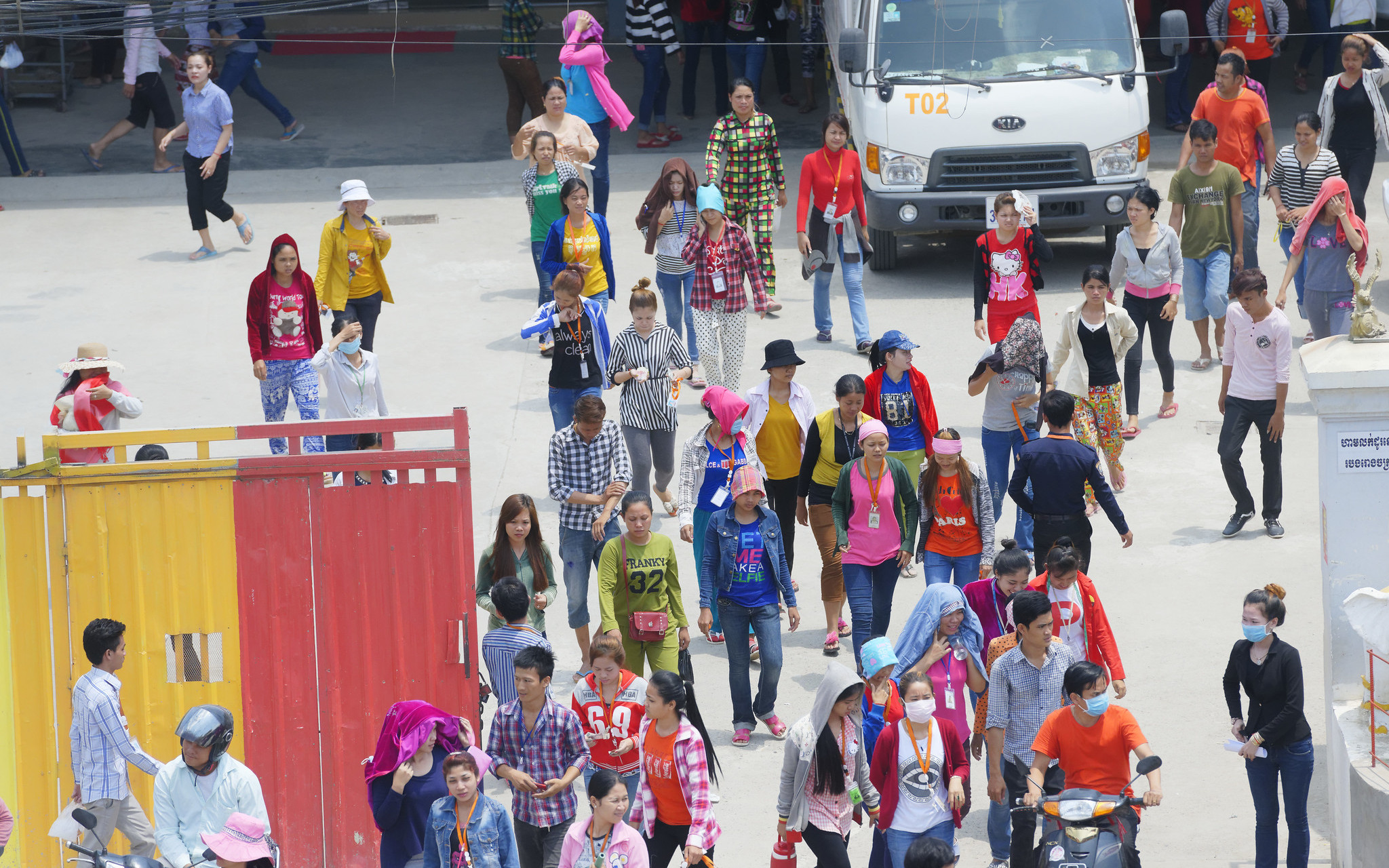The Cambodian economy could grow by 5.3% this year, said ADB economists on Wednesday, pointing to a manufacturing rebound as helping to drive renewed growth.
The economists delivered their forecast in a press conference to discuss their Asian Development Outlook report for 2022, which was released the same day. The forecast also included projections for 2023, in which the bank’s economists saw potential for a 5.3% rise in GDP to further pull Cambodia from its pandemic slump.
Economists say Cambodia’s GDP shrunk by 3.1% in 2020, a sharp downturn that broke a nearly decadelong arc of strong annual gains. But the national economy already showed signs of recovery last year, with the ADB noting a return to growth at an estimated rate of 3%.
Looking back on 2021, economist Poullang Doung said the economy “rebounded faster than expected” due in large part to strong demand for Cambodia’s manufactured goods, particularly garments, footwear and travel accessories. Last year’s overall economic growth was driven by the industrial sector marking a 7.4% increase, Poullang said, after contracting by 1.4% in 2020.
Extending that pattern through this year, ABD projects manufacturing will expand by a further 8.1%. Next year could be even bigger, with the economists predicting the sector’s growth could hit 9.1%.
Beyond manufacturing, for 2022 and next year, ADB predicted, the services sector will continue its upturn from pandemic lows — especially as tourists gradually return to Cambodia.
Despite a generally positive outlook, there still remain many factors that could hamper the kingdom’s economic recovery.
The World Bank this week predicted a lesser rate of GDP growth of 4.5% for the year in its own forecast as a baseline, cautioning that it could be as low as 3.8% depending on continued exposure to risks.
ADB’s more positive forecast also included its own caveats.
Sophie Nguyen, the bank’s country economist for Cambodia, pointed to risk factors such as the geopolitical and economic fallout of Russia’s invasion of Ukraine. Those wartime disturbances could spill into Southeast Asia in the form of rising costs of energy and other commodities, Ngueyn said, which would disrupt their growth trajectory.
She also listed ongoing pandemic effects — such as major learning losses for school children, the possible rise of newer, more infectious Covid-19 variants, and China’s struggle to contain an ongoing epidemic of the omicron variant — as potentially hurting supply chains in the near-term while entrenching economic inequality in the longer term.
Finally, Nguyen said any sharper-than-expected interest rate hikes from the U.S. Federal Reserve central banking system to curb that country’s steep inflation rate could have a knock-on effect on financial stability around the world.
Despite the uncertainties ahead, Stephen Higgins, managing partner at Mekong Strategic Partners, said his firm was inclined to agree with the more optimistic ADB forecast rather than the more conservative World Bank prediction.
“Manufacturing is clearly doing well at the moment, and we’d expect that to continue,” Higgins said in a message. “Tourism dollars will probably come back a little earlier than expected, even if overall numbers are well down due to low value package tours remaining low.”
Higgins also said Phnom Penh hotels have seen a solid uptick of business travelers, which he saw as a good sign for the return of foreign direct investment.
But not all sectors are equally likely to rise on the improving economic tides. Though Higgins believed the growth of manufacturing would boost industrial property development, he thought it was unlikely to see a return to the pre-pandemic construction boom.
“Construction is going to get ugly, particularly in residential,” he predicted. “[There’s] still a massive overhang of empty apartments, and the borey market is also coming under pressure now.”













